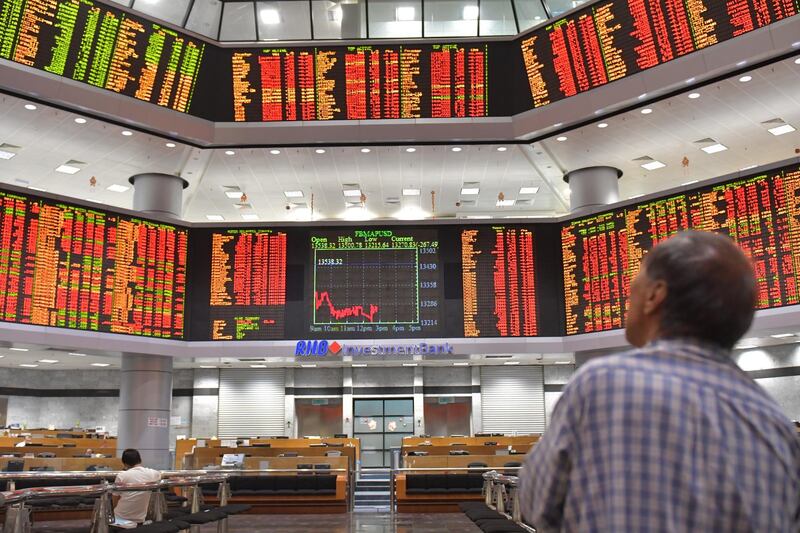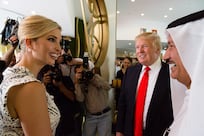Arab stocks ended lower but emerged relatively unscathed on Tuesday, amid a continuing slump in global markets, as fears of accelerated US interest rate hikes prompted a huge equities and bonds correction.
Shares in Dubai fell as much as 2.9 per cent in early trading – their deepest mid-session fall in over 18 months – but recovered gradually throughout the day, eventually ending 1.5 per cent lower. Saudi Arabia’s Tadawul opened off 2.1 per cent, but pared losses to close down 1.6 per cent.
“While we had some panic selling at the open, it increasingly became a case of people wanting to sit and watch rather than engage,” said Julian Bruce, head of institutional trading at the Egyptian investment bank EFG Hermes in Dubai.
“FAB [which ended 0.4 per cent lower] held up well, and Emaar Properties [which ended 1.5 per cent lower] closed up much better than people were expecting.”
Such a performance was in marked contrast to indices in Asia and Europe, which fell sharply yesterday after record selloffs in the US the day before.
Asian stocks were sharply lower on Tuesday, Japan's Nikkei closed 4.8 per cent lower, with Hong Kong stocks down 5.1 per cent. The FTSE 100 index dropped as much as 3.5 per cent.
Emerging markets outflows since January 30 have amounted to nearly $4 billion, the biggest selldown since the November 2016 US election, according to estimates from The Institute of International Finance.
Asset managers said while the sell-off has been most pronounced in markets that were overvalued, the rout may not be as bad in Middle Eastern markets that have been trading at attractive valuations.
_______________
Read more:
[ Saxo Bank equity expert says too early to predict bear market ]
[ Dow Jones plunges 4.6%, wiping gains of 2018 so far ]
_______________
“The inescapable reality is that a global sell-off in risk assets will have a contagious effect on the region,” Tarek Fadlallah, chief executive of Nomura Asset Management Middle East told The National. “The lack of speculative froth in the local markets and undemanding valuations may help them avoid the worst outcomes."
The Dow Jones Industrial Average erased the year's gains so far on Monday, closing down 4.6 per cent, its biggest fall in more than six years, after a strong jobs report on Friday said wages were rising at their fastest rate since 2009, prompting warnings of accelerating inflation and a year of interest rate rises ahead.
The Dow and the S&P both fell more than 2 per cent at the open on Tuesday, with the Vix volatility index – also known as Wall Street’s fear gauge – hitting the 50 mark, its highest level since China devalued its currency in August 2015.
Such falls came even as analysts highlight that fundamentals in the US economy remain sound, with falls in share prices widely expected following their recent record-breaking run.
“Corrections were to be expected in these asset classes given the sharp gains seen since January,” said Tim Fox, head of research & chief economist at Emirates NBD.
“The markets are responding to signs that the Fed may have to tighten monetary policy faster and by more than expected given rising signs of wage pressures in the US economy. The fundamentals in both markets, however, appear to be firm which suggests that these declines will eventually stabilise.”





